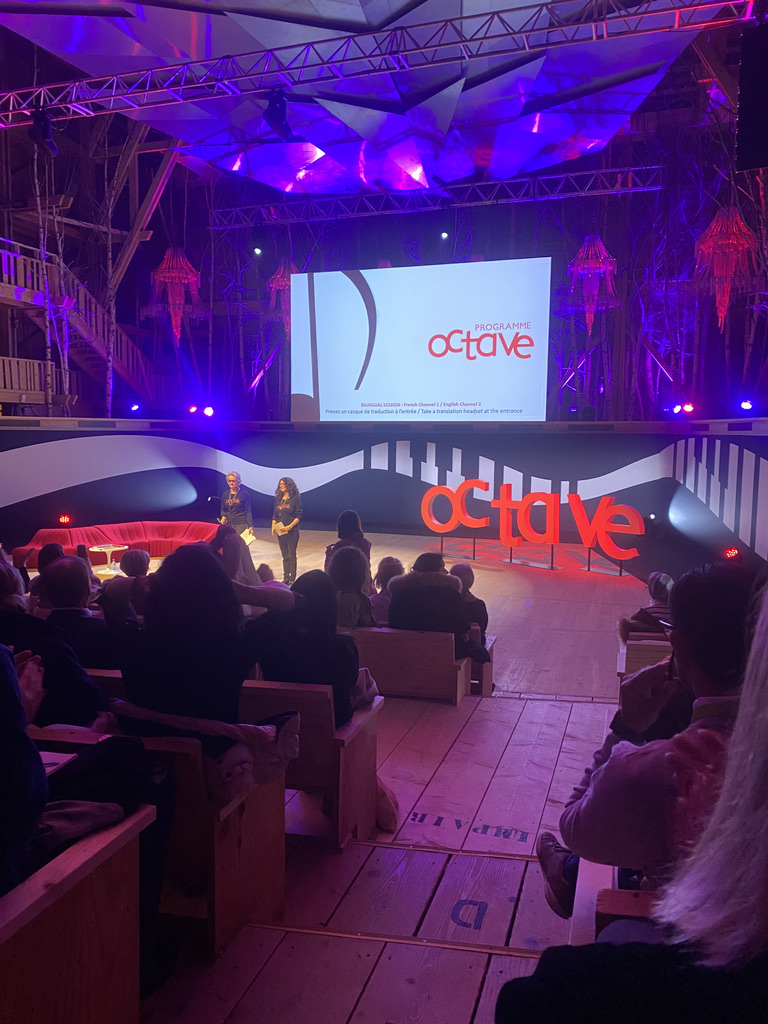Connect with us on LinkedIn for updates and the latest industry news
Being the ‘Sense Maker’ is an often overlooked skill for leaders. We’d describe it as being able to share information and clarity around the organisation in an engaging way with the teams within it… and similarly to represent the views, concerns, ambitions and focusses of the teams back to the wider organisation. At Leading Edge we think to lead without this skill means we risk ‘creep’ from the goal or mission of an organisation, and disengagement in the higher purpose and sense of belonging.
This montage of stories from successful leaders in sport illustrates some of the key attributes around this area/skill set.
Paraphrasing some of the voices:
Bill Sweeney CEO – British Olympic Association
“If you are wedded to one particular way of doing things, chances are that, that will become obsolete quite quickly”
We need to be able to adapt and change and be resilience to see it through. Core to sense making and being able to understand new context and follow progress healthily.
Mark Parkman General manager – International Olympic Committee
“You need to be able to communicate a clear message of what you want, but also enable your employees to make decisions, to make recommendations and be open to their thought process”
I think this point about clarity and being open to the thought processes of your employees is key. Secondarily, listening to their immediate and longer term responses gives great insight and valuable perspective.
Sense Making Spaces
As Leaders we need to appreciate that ‘Sense Making’ happens without us, regardless of what we do. The danger exists if we do nothing and the stories shared and created by our teams are ones that lead away from our organisation destination/mission rather than toward.
These stories can lead to distraction and even destruction of teams, as social structures feed the anxieties within individuals. The rumours move fast and become gospel sometimes without true evidence.
Therefore your role as a leader is to both be the ‘Sense Maker’ and to provide space for others to ‘Make Sense’ for themselves (without your watchful eye).
Sense Making within Formal Structures
Where you are taking a proactive approach to formal sense making within your organisation you should make space for the sharing of formal stories, official data and organisational research. The following approach can support the cultivation of insight for new futures based on current context and new information.
Principles for Formal Sense Making
| Principle – Understand | Consideration | Questions |
| Organisational Context | Organisational structure, hard facts, data, insight from trusted research | What is happening?
Why is this happening? Who has initiated this? |
| Social Context | Individual and collective narrative regarding how we work with each other | What do I think (individual)?
What do we think (team)? What do they think (leaders)? |
| Culture Context | Social norms, behaviours, connections/interconnections between people, assumptions | How has this been received?
What are we seeing? Why is this the case? |
| Formal Exploration | Idea generation, exploration, testing, re-testing, group think, convergence | How will we explore this?
Who should we involve? What authority do we have? |
| Organisational Aim | Focus on organisational goal, vision, mission ‘what matters to us’ | Is this benefiting our future?
How is this benefiting? Is it worth it? |
Sense Making within Social Structures
Where you are taking a proactive approach to Informal sense making within your organisation you should make space for the sharing of social stories, individual data and personal research. Allow communities to form and conversations to flow freely (do not monitor these , they will only dwindle). The following approach can support the sharing of personal stories to form collective wisdom, valuable to any future plans.
| Principle | Consideration | Questions |
| Priming | Sharing of important facts (and anecdotes) about organisational situation | What is happening?
Why is this happening? Who has initiated this? |
| Exploration | Provision of a space to share, formal or informal (not observed by leaders) | What do I think (individual)?
What do we think (team)? What do they think (leaders)? |
| Incubation | Provide a timeframe appropriate for thoughts to percolate and settle | How has this been received?
What am I seeing? Why is this the case? |
| Elaboration | Idea sharing in social spaces, leading to group think and outlier expressions | How can we now explore this?
Who wants be involved? What authority do I/we have? |
| Sharing | Opportunity to share openly back into formal space ‘what matters to me’ | Is this benefiting my future?
How is this benefiting? Is it worth it? |
Bringing the stories together
In this process we are looking for a co-created story, one which is shared both organisational and individually. One that binds the team to the organisational mission but is considerate of the personal aspirations and reactions of team members.
At Leading Edge we’ve phrased our cultural purpose in this space… “If it matters to you, it matters to us”
The leaders role
Make space for people to find personal relevance for new information, allow them to explore alone and with others. Provide formal and social opportunities for this, allow people to discarded what is irrelevant and focus on the hard facts that matter and the social structures that support. Give appropriate time for reflection and diverse channels for response and feedback.
by Kurt Lindley



